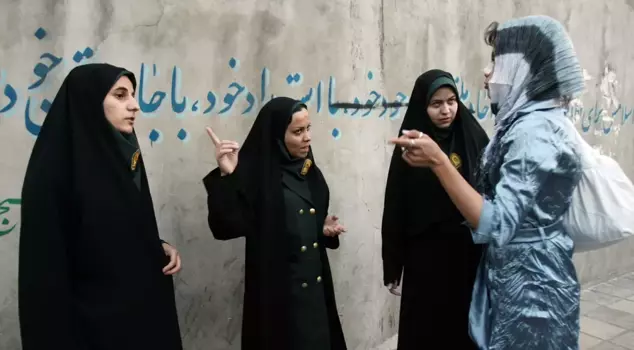
16.11.2024 20:31
Iranian officials announced plans to open a new clinic in Tehran to treat women who reject the mandatory hijab. Psychiatrists have reacted strongly to the decision.
An Iranian official announced plans to open a new clinic in Tehran to treat women who reject the mandatory hijab.
PSYCHOLOGICAL TREATMENT WILL BE PROVIDED FOR WOMEN WHO DO NOT WANT TO WEAR A HIJAB IN IRAN
A controversial decision has been made for women in Iran who reject the mandatory hijab. Mehri Talebi Darestani, head of the Promotion of Virtue and Prevention of Vice Unit, stated in a press release on Tuesday that the government plans to open a clinic in the capital Tehran to provide psychological treatment for women who do not comply with hijab rules. Darestani noted that this will be the first counseling clinic dedicated to supporting Iran's mandatory hijab laws, providing "scientific and psychological treatment for the removal of the hijab."
Darestani expressed that visiting the clinic will be voluntary, stating, "The establishment of this center will be for the scientific and psychological treatment of removing the hijab, especially for the younger generation, young adults, and women seeking social and Islamic identity." The official's statement came shortly after an Iranian woman was admitted to a psychiatric hospital for protesting the strict dress code enforced on university campuses after being physically harassed by security personnel for wearing her hijab incorrectly.
STRONG REACTION FROM PSYCHIATRISTS TO THE DECISION
Many organizations, including the Iranian Psychiatric Association, published a joint statement expressing their opposition to the issue. In their joint statement, which included a request for the Iranian judiciary to intervene in the opening of the "Hijab-Free Clinic" and to take necessary measures to prevent its continuation, many organizations, including the Iranian Psychiatric Association, stated, "Wearing or not wearing a hijab is a social and cultural phenomenon and is not an illness that needs to be treated."
Experts included the following statements in their joint declaration: "'The use of the words 'clinic' and 'abandonment' implicitly presents 'wearing the hijab differently from the country's laws' as a mental disorder or illness, which is a clear example of the abuse of psychology and psychiatry. Such traumatic decisions and actions can expose those who are not ill to the label of illness, cause stigmatization, confuse those receiving psychological services, and even mix treatment and discipline, which are two incompatible and opposing concepts, leading clients to view these services negatively. These types of decisions, which show that their negative consequences have not been sufficiently considered and are devoid of any logic, impose many humanitarian and moral responsibilities on those involved due to the serious injuries they cause."
Dr. Hamid Purşerifi, president of the Iranian Psychiatric Association, also stated regarding this issue: "Projects like hijab abandonment clinics are an abuse of psychology. The fact that people wear hijabs has nothing to do with mental health issues and is an individual choice. When they use the term treatment in this context, it signifies an abuse of psychology and actually implies a kind of mental concern, as it leads people to pessimism regarding mental health services."